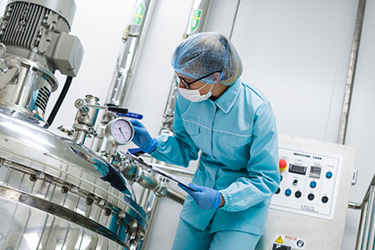Bioreactor Monitoring Via ZipChip CE-MS Quantifying Amino Acids In Spent Growth Media

Manufacturing of biotherapeutic proteins often relies on expressing the drug product in large scale bioreactors. Monitoring the components of the cell growth media in the bioreactors can provide important insight into the growth and nutrient consumption of the cell culture. This information can be vital for maintaining the health of a bioreactor and maximizing production of the drug product. Many of the media components included to promote and sustain cell growth are small, polar analytes that can be difficult to analyze using conventional techniques. To achieve acceptable separation performance and detection these analytes are often derivatized to increase either their hydrophobicity, volatility, or UV absorbance properties for analytical techniques such as liquid and gas chromatography. The reliance on derivatization increases the time, complexity, and cost associated with the analysis making the assay impractical for routine use in many environments.
The separation mechanism used by ZipChip is capillary zone electrophoresis (CZE). CZE is based on charge and hydrodynamic radius rather than retention on a stationary phase, making this technique well suited to analyzing small, polar analytes. ZipChip integrates CZE separations with on-line electrospray ionization, directly connecting high efficiency separations with MS characterization. By combining CZE separations with MS detection the derivatization step can be eliminated and the only sample preparation necessary is dilution.
Get unlimited access to:
Enter your credentials below to log in. Not yet a member of Bioprocess Online? Subscribe today.
